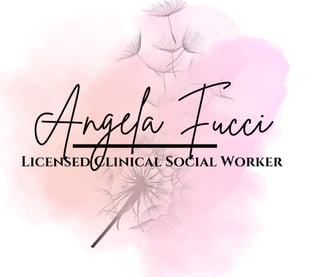Low self-esteem refers to having a negative perception of oneself and one's abilities, worth, and value. Individuals with low self-esteem often doubt their own capabilities and tend to see themselves in a more critical light compared to others. They may harbor feelings of inadequacy, self-doubt, and unworthiness, which can significantly impact various aspects of their lives, including relationships, work, and overall well-being
Low Self-Esteem
Some common characteristics and behaviors associated with low self-esteem include:
Negative Self-Talk: Engaging in frequent self-criticism and negative inner dialogue, such as labeling oneself as "worthless" or "unlovable."
Perfectionism: Setting unattainably high standards for oneself and feeling constant pressure to meet these standards, leading to feelings of failure and disappointment.
Comparing Oneself to Others: Constantly comparing oneself unfavorably to others and feeling inferior as a result.
Fear of Failure: Avoiding challenges or new experiences due to a fear of failure or rejection, which can hinder personal growth and development.
Seeking External Validation: Relying heavily on external approval and validation from others to feel worthy or accepted.
Difficulty Accepting Compliments: Feeling uncomfortable or unworthy of compliments and positive feedback from others.
Avoiding Social Interaction: Withdrawing from social situations or relationships out of fear of judgment or rejection.
Difficulty Asserting Boundaries: Struggling to assert personal boundaries and advocate for one's needs and desires in relationships.
Depression and Anxiety: Low self-esteem can contribute to the development of mental health issues such as depression and anxiety, as individuals may constantly worry about their perceived inadequacies and shortcomings.
Imposter Syndrome: Feeling like a fraud or believing that one's achievements are undeserved, despite evidence of competence or success.


Low self-esteem can have significant negative effects on mental and emotional well-being, leading to feelings of unhappiness, dissatisfaction, and a diminished sense of overall quality of life. If you are experiencing any of these symptoms, we can work together to develop a plan to improve your quality of life.
With self-awareness, support, and therapeutic interventions, you can learn to challenge negative beliefs and develop a more positive and realistic self-image and begin to see yourself in a new light.


Virtual Therapy for Adults in PA and NJ
100 4th Street #6
Honesdale PA 18431
Phone: (570) 729-5795
Link to Telehealth will be provided via email and is also available by logging into the client account at the time of the appointment.
Professional Affiliations
National Association of Social Worker
National Association of the Dually Diagnosed
American Board of Clinical Social Work
Pennsylvania Society for Clinical Social Work